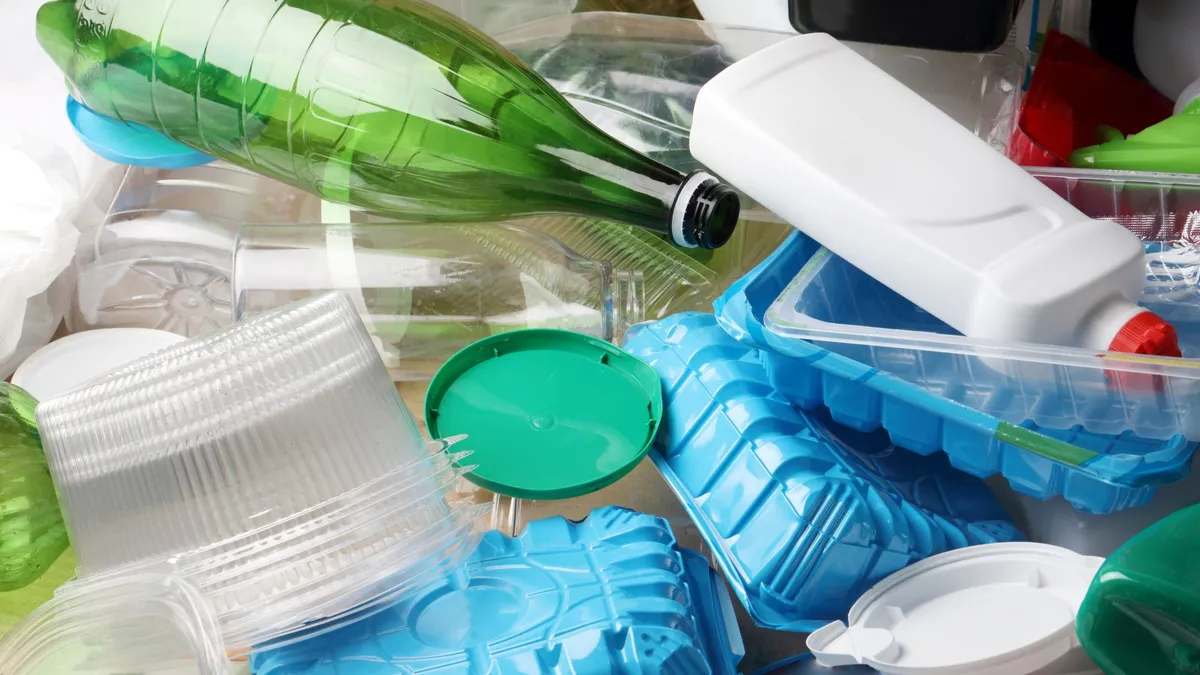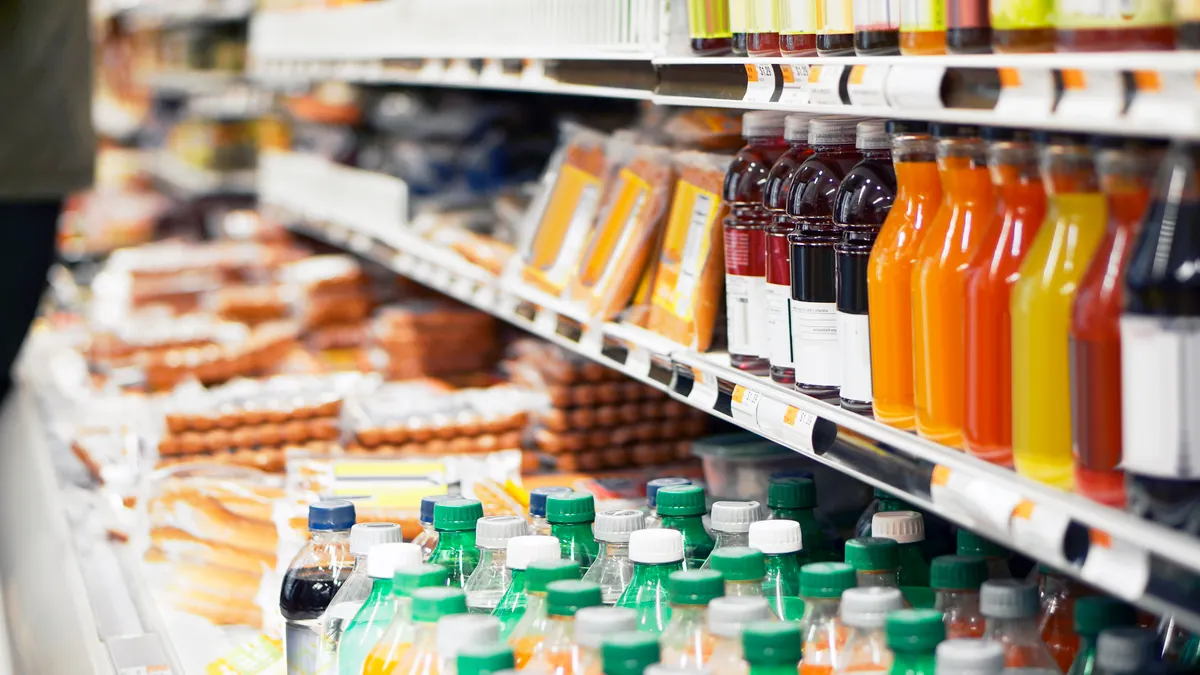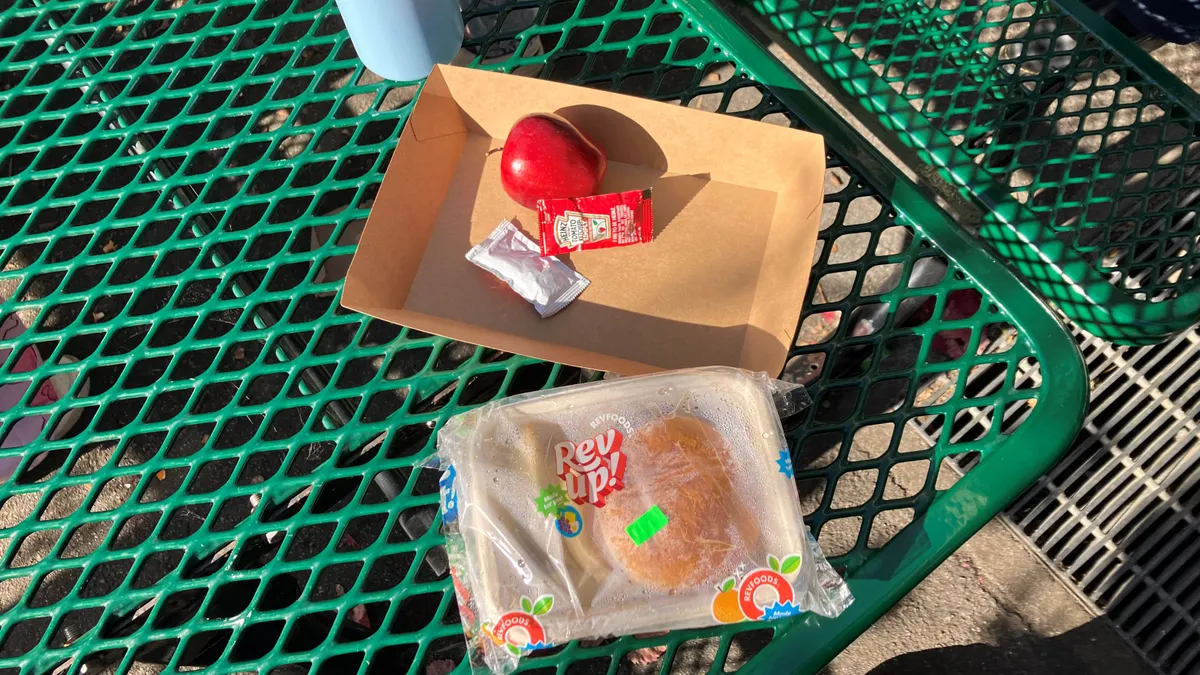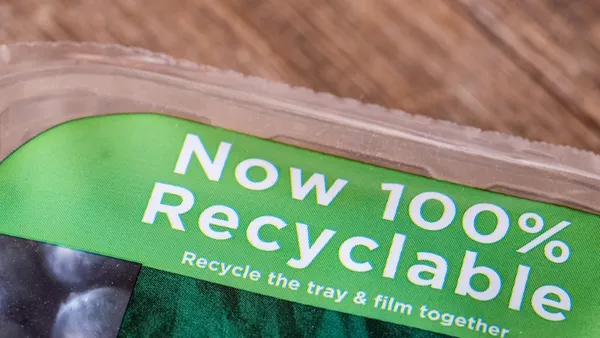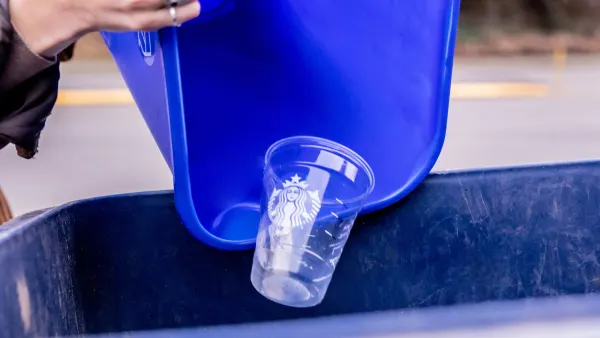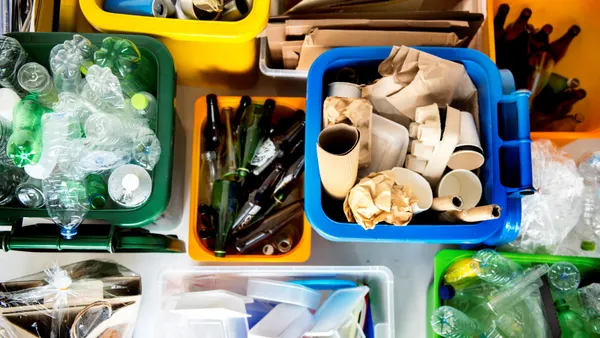The Ellen MacArthur Foundation this month released the final progress report under the initial phase of its Global Commitment, as it unveiled an updated plastics agenda for businesses pegged to 2030.
The U.K.-based organization launched the Global Commitment in 2018 to engage stakeholders across the plastic packaging value chain to make plastic packaging recyclable, compostable or reusable by 2025; eliminate problematic or unnecessary plastic packaging; grow the rate of postconsumer recycled content across all plastic packaging and increase reusable packaging.
The latest progress report, reflecting 2024 data, shows how companies took steps in those categories, while still falling short of targets.
At this 2025 crossroads, EMF cast some blame on stakeholders that haven’t been part of the push to transform packaging circularity. While signatories reflected 20% of the market, “We need to talk about the other 80% and how to get the entire market to change,” EMF stated in its recent report.
“Over the past seven years, the businesses that stepped up and shared transparent updates on their progress faced the closest scrutiny. The 80% that did not step up however, even the many large players in that group, remained largely out of the public eye, despite, on average, lagging significantly behind those that did,” the report says.
For example, by EMF’s calculation, brand and retailer signatories roughly tripled their share of recycled content in packaging from 4.6% in 2018 to 15.9% in 2024, versus the global markets growth from 3.4% to just 4.2%.
When launching the updated agenda in early November, EMF reported that businesses representing 20% of the plastic packaging market have signed on to the next phase of the Global Commitment, “setting 2030 targets and publicly reporting on their progress, even as the context in which companies set public targets has become more complex.” Of this group, 37% were CPGs, retailers or food service companies, 29% were packaging producers, 24% were recyclers and 11% were plastic producers.
These are some of the 2024 data highlights as EMF transitions from the Global Commitment’s “first chapter”:
Packaging manufacturers are working to incorporate recycled plastic and recyclable, reusable or compostable designs
Many CPGs have decreased virgin plastic use since 2018, while others have increased
SC Johnson led the pack of CPGs on virgin plastic reduction. The company reported a 33% reduction in virgin plastic use since 2018, in addition to now using postconsumer recycled content across a quarter of its plastic packaging portfolio.
“We’ve made real progress, but as I often say, I wish we were even further along,” said CEO Fisk Johnson in a statement.
SC Johnson confirmed it’s now working toward 2030 targets to reach a 55% reduction in virgin plastic use (from that same 2018 baseline), achieve 55% recycled content across its plastic packaging, and design 90% of its packaging to be recyclable.
SC Johnson remains a vocal proponent for extended producer responsibility for packaging.
“We’ve learned that voluntary actions, such as using more recycled plastic in our products, can only go so far, unfortunately,” Johnson said, advocating for federal packaging EPR “to make companies, including ours, accountable for improving recycling systems, driving innovation, and funding effective collection programs.


